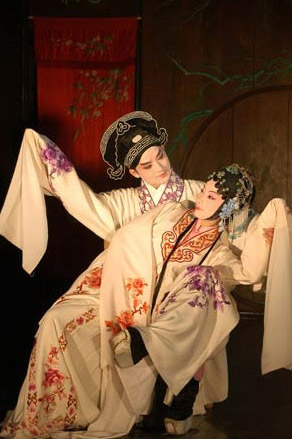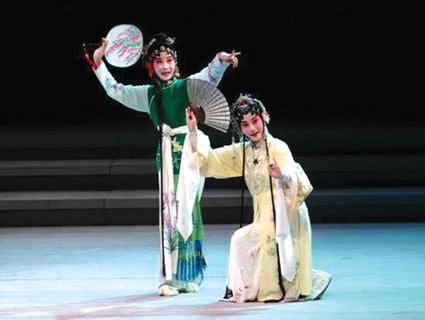Kunqu Opera, in its development, had different kinds of names, such as kunqiang ,kun tune, kunqu, and so on. Generally speaking, kunqiang is used to express tunes of the opera, and kunqu is used to express oratorio, while kunqu opera is a kind of opera that means performance arts.

Kunqu Opera flourished and dominated the opera field for more than 230 years, from parts of the Ming and Qing dynasties (1570-1800). It was in this period that Kunqu Opera flourished the most. New works came up continuously; the performance art became more and more mature, and the diversion was more and more specific. In the performing form, Kunqu Opera changed from unabridged version of legend to Zhezi Opera.
Zhezi Opera selected the excellent episodes of an opera to enrich the details, and consequently became the independent short opera. Zhezi Opera brought a lively prospect into Kunqu Opera, using its vivid story, brilliant performances, and various art styles.

Kunqu Opera had a rich variety, and elegant scripts. Even today, it is enjoyable to read the scripts, as many lines come from poems. Besides, Kunqu Opera has a particular tune system and a complete acting system.
Kunqu Opera is a comprehensive art that combines singing, dancing, narrating, and acting. The literature, music, and dance of Chinese opera were all perfected and enhanced in the development of Kunqu Opera.
The growth of Kunqu Opera represents the growth of Chinese opera. It had a direct influence on the development ofBeijingOpera, Chuan Opera, Xiang Opera, andHuangmei Opera. That is why people always regard it as the "grandfather of all the operas."
